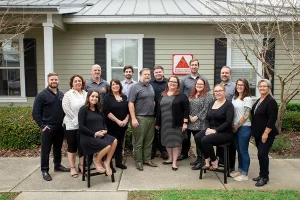Airbag Supplier ARC Was Cited For 17 Workplace Safety Violations In 2019 | The Morning Shift

More information is coming to light about ARC Automotive, the Tennessee-based airbag parts supplier whose potentially dangerous inflators are present in an estimated 67 million vehicles in the U.S. In May ARC resisted a National Highway Traffic Safety Administration order to recall its components, which may spew shrapnel upon deployment according to the safety regulator, and have killed two people as a result.
What Car Should You Buy: Efficient Comfort Edition
A Wall Street Journal article published Sunday dredged up a string of workplace safety violations at the Knoxville company four years ago:
The Tennessee Occupational Safety and Health Administration cited ARC for 17 workplace-safety violations, most of them related to a lack of controls and procedures for handling explosive materials used in the manufacturing process, the documents show.
Among the violations, the state regulator cited ARC for employees being exposed to hazardous quantities of these materials and its failure to provide clear instructions or training to protect workers from the risks of working with them.
A spokesman for Tennessee OSHA said that ARC paid a penalty of $22,080 for the violations and that all items were abated. He said the average Tennessee OSHA penalty is about $4,700.
“This penalty is huge for Tennessee and signifies how serious these hazards are,” Debbie Berkowitz, a former OSHA policy adviser, who reviewed a copy of ARC’s citations.
“During my time at OSHA and as a union health and safety director, when a company cuts corners on worker safety, they are often cutting corners on other processes and other safety issues,” she said.
The Journal report also mentions a lawsuit over shoddy manufacturing protocols brought against ARC by a Takata subsidiary, of all companies. Now if that isn’t the pot calling the kettle black:
ARC was also sued in 2019 by the trust of bankrupt supplier TK Holdings, which claimed that ARC’s manufacturing quality was subpar and that defective inflators wound up in vehicles produced by General Motors.
TK Holdings was the U.S. subsidiary of Takata, which was based in Japan.
The lawsuit alleged that ARC improperly welded metal studs used on the inflators and then shipped the parts to customers.
The flaw resulted in the metal studs later failing, the complaint said. In 2016, GM recalled about 3,100 Chevy Malibu sedans, citing a risk the studs could fracture, dislodge the air bag and potentially cause injuries.
The case resulted in a confidential settlement according to TK Holdings’ legal counsel, which is perhaps why we haven’t heard much of it until now. Like ARC, Takata initially rejected officials’ demand for a recall when it went through its own version of this almost 10 years ago. Takata eventually folded, but ARC, owned by China-based Sensteed Hi-Tech, has held the line thus far.
The problem is that NHTSA, like so many American regulatory bodies, isn’t as powerful as it might seem from the outside. “A supplier can gum up the works if they refuse to cooperate,” former NHTSA acting administrator David Friedman told WSJ. “I could see it getting pretty complicated really fast, especially if it’s a country that we necessarily haven’t always had the best relationship with.” Of course, it’s not like this mess hasn’t already dragged on far too long enough as it is. Remember, the NHTSA’s probe into ARC started way back in 2015.


